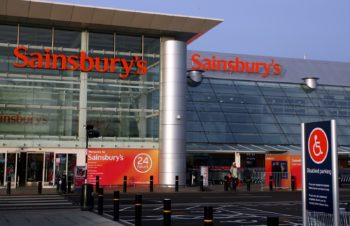

Energy
Powered by Plants: Sainsbury’s Switch to Eco Energy
Leading supermarket chain Sainsbury’s have teamed up with the UK’s biggest food waste recycler ReFood. Together they are turning Sainsbury’s supermarkets eco-friendly by powering them using only green gas. The partnership has been hailed as one of the largest of its kind in the UK.
In partnership with the UK’s leading food waste recycler, ReFood, a number of Sainsbury’s supermarkets across the country are now powered by green gas. Produced entirely from waste food, the energy generated over the past year alone is enough to power 5,000 homes, or 10 per cent of Sainsbury’s entire national gas consumption for the year, with ReFood having supplied the retailer with almost 50 million KWh of biomethane gas to date.
As part of the agreement, food waste is collected from Sainsbury’s’ two depots in Sherburn-in-Elmet and Haydock, before being converted into gas, heat and fertiliser at ReFood’s state-of-the-art anaerobic digestion (AD) processing facilities.
The green gas is then exported to the national gas grid by ReFood and, through a third party, is imported by Sainsbury’s stores nationwide – being used to generate carbon-neutral electricity for power and heating. The agreement is one of the largest of its kind in the UK, seeing ReFood supplying both green gas and supporting certification.
As a result of the partnership, ten stores have already significantly increased their use of renewable energy, while lowering utility bills. The partnership also helps to deliver Sainsbury’s commitment to send zero operational waste to landfill, by finding a use for inedible waste products. All surplus edible food is donated to local charity partners.
Paul Densham, Utilities Buyer at Sainsbury’s, said: “Increasing the sustainability of our UK stores is a key corporate priority and we’re making great progress in our drive to reduce food waste across the business. Working in partnership with ReFood allows us to effectively recycle our food waste, creating renewable energy in result.
“What’s more, it sits well alongside our wider sustainability goals, such as working with food redistribution charities and prioritising sustainable transport strategies. The project has helped us to become a market leader in sustainability and waste reduction, ensuring that we send zero waste to landfill – a promise we’ve been able to make for some years now.”
Philip Simpson, Commercial Director at ReFood, added: “Using our national network of processing plants, we’ve provided a truly sustainable solution for stores across the UK.
“Generating a significant volume of green gas in result, the partnership has enabled Sainsbury’s to use less fossil fuels, minimise utility bills and eliminate unnecessary food waste disposal. What’s more, with a highly effective sustainable biofertiliser also generated via the AD process, stores nationwide are working together to effectively close the food supply chain – from farm to fork and back again.”
Anaerobic digestion is a natural process where organic materials are broken down by naturally occurring micro-organisms. This releases biogas that can be used to generate renewable heat and power, helping to reduce dependence on fossil fuels, while minimising greenhouse gas emissions.
For more information about the project, or to find out more about ReFood’s innovative food waste collection and recycling services, visit their website. For more information on Sainsbury’s commitment to sustainability, visit their website.


 Environment12 months ago
Environment12 months agoAre Polymer Banknotes: an Eco-Friendly Trend or a Groundswell?

 Features11 months ago
Features11 months agoEco-Friendly Cryptocurrencies: Sustainable Investment Choices

 Features12 months ago
Features12 months agoEco-Friendly Crypto Traders Must Find the Right Exchange

 Energy11 months ago
Energy11 months agoThe Growing Role of Solar Panels in Ireland’s Energy Future





























